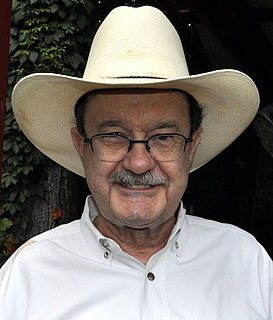A Quote by Paul Hawken
There are insistent calls for autonomy, appeals for a new resource ethic based on the tradition of the commons, demands for the reinstatement of cultural primacy over corporate hegemony, and a rising demand for radical transparency in politics and corporate decision making. It has been said that environmentalism failed as a movement, or worse yet, died. It is the other way around. Everyone on earth will be an environmentalist in the not too distant future, driven there by necessity and experience.
Quote Topics
Appeals
Around
Autonomy
Based
Been
Calls
Commons
Corporate
Cultural
Decision
Decision Making
Demand
Demands
Died
Distant
Driven
Earth
Environmentalism
Environmentalist
Ethic
Everyone
Experience
Failed
Future
Hegemony
Making
Movement
Necessity
New
Other
Over
Politics
Primacy
Radical
Resource
Rising
Said
Too
Tradition
Transparency
Way
Will
Worse
Related Quotes
This is an incredibly creative time. It is a difficult time. It is a disparaging time. A time of cultural and global transitions based on the realization that the Earth cannot support nonsustainable practices anymore. I believe capitalism will eventually be replaced by a communitarian ethic where the rights and care of all beings will be taken into consideration, not just the greed of a corporate few.
For me, the anarchy movement is hilarious. It's all under .org, which is of course government sponsored websites, and then they're all wearing corporate clothing from the Dr.Martin's to the back sacks and the cell phones, they're all flying around on corporate jets and using corporate highways. Very anarchistic!
I think that environmentalists have been terribly misunderstood over the years. I believe that anyone that cares about the earth is an environmentalist. People that make a decision to not throw garbage out on the street because they consider the possible impacts. That's environmentalism in its most basic form.
No one "discovers" the future. The future is not a discovery. The future is not a destiny. The future is a decision, an intervention. Do nothing and we drift fatalistically into a future not driven by technology alone, but by other people's need, greed, and creed. The future is not some dim and distant region out there in time. The future is a reality that is coming to pass with each passing day, with each passing decision.
The broadening of the economic order which came to be seated in the individual property owner... dramatized by Jefferson's purchase of the Louisiana Territory... "The supremacy of corporate economic power... consolidated by the Supreme Court decision of 1886 which declared that the Fourteenth Amendment protected the corporation... [the New Deal, leading to], within the political arena, as well as in the corporate world itself, competing centers of power that challenged those of the corporate directors.
Populists have always been out to challenge the orthodoxy of the corporate order and to empower workaday Americans so they can control their own economic and political destinies. This approach distinguishes the movement from classic liberalism, which seeks to live in harmony with concentrated corporate power by trying to regulate excesses.
In other words, "speaking truth" as a social movement may move you forward in some ways, but to really lock in and have real enduring change, it takes both a movement on the ground and an independent political party that is itself the defiance of that two-party corporate big-money control of politics.
Countries will cooperate with each other, and are more likely to cooperate with each other when they share a common culture, as is most dramatically illustrated in the European Union. But other groupings of countries are emerging in East Asia and in South America. Basically, as I said, these politics will be oriented around, in large part, cultural similarities and cultural antagonism.





































